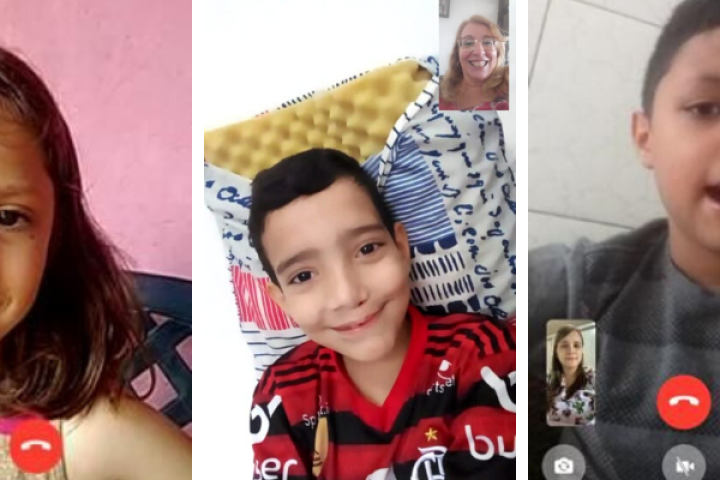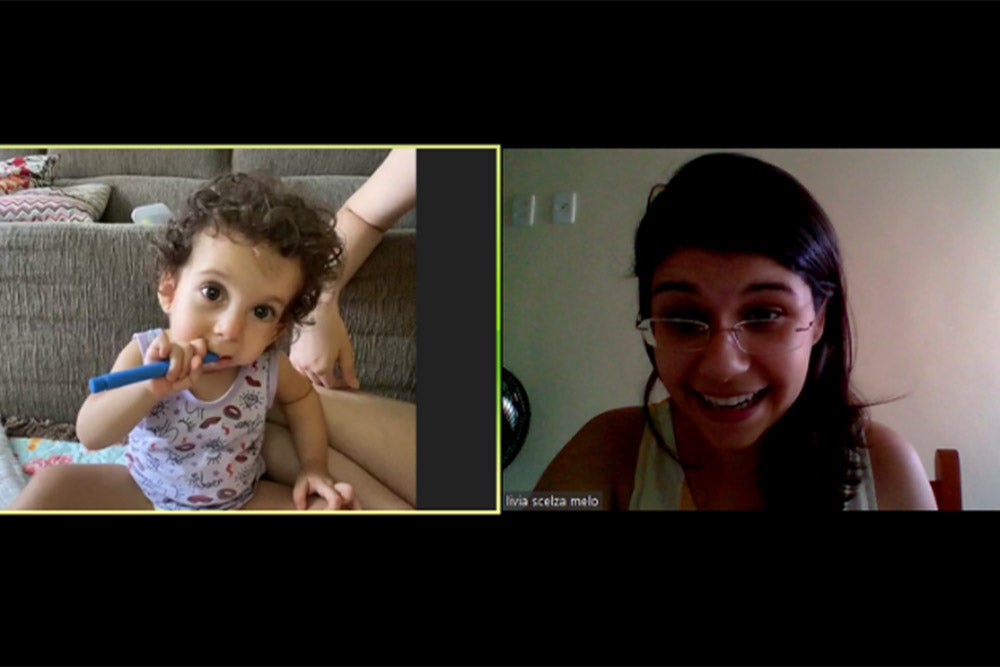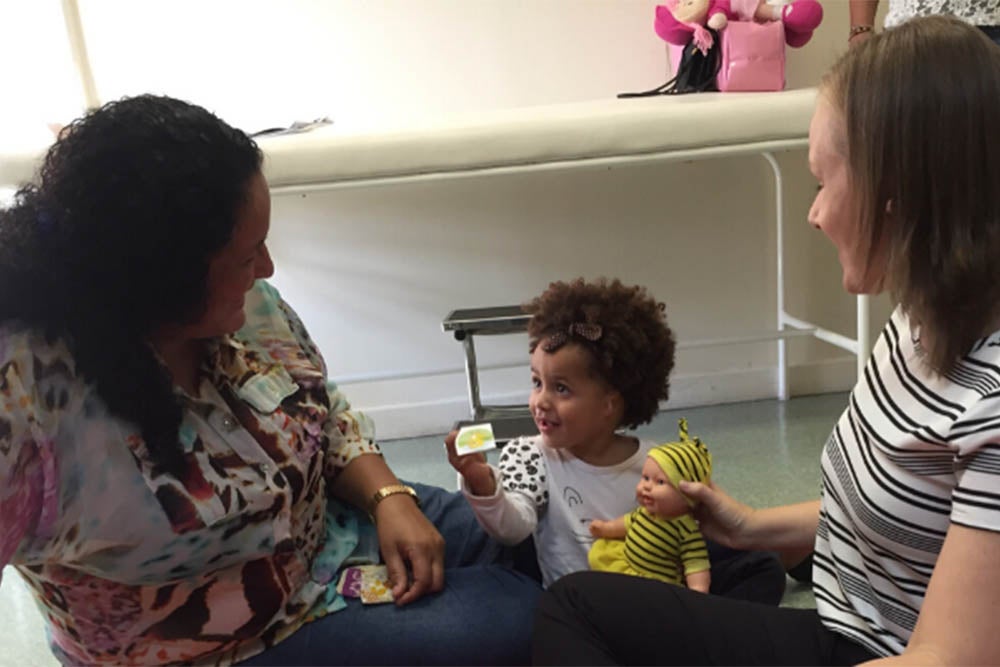Overcoming the Distance: Continuing Care Amidst COVID-19

"Every hand we don’t shake must become a phone call that we place. Every embrace that we avoid must become a verbal expression of warmth and concern. Every inch and every foot that we physically place between ourselves and another must become a thought as to how we might help that other, should the need arise." – Rabbi Yosef Kanefsky
Elaine Liborio had never anticipated working through a situation like COVID-19. For four years, she has been a speech therapist at Associação Beija-Flor, a Smile Train partner in Ceara, Brazil. Her work with cleft patients has spanned more than 15 years.
COVID-19 forced her to retreat to her home, as she was in a high-risk category for contracting the virus. While in lockdown, she couldn’t stop worrying about the children who would not be able to continue with speech therapy during the pandemic — especially those with clefts, who she knew would be left especially vulnerable by the interruption.
Once it became clear that the lockdown would last for a long time, she knew she had to act. When the Brazilian Federal Speech Language Pathology and Audiology Council authorized online care, the staff and board of Beija-Flor worked with Elaine to put together an online speech therapy program for patients.

Elaine has been thrilled to see the impact of the sessions on not just her patients, but also their families. Parents, always essential to their child’s success in speech therapy, have been especially critical in these remote sessions.
“As the majority of patients are young, parents need to act as facilitators during the sessions. Having their parents by their side has made the patients participate more during the online sessions and understand exactly how the training should be. It has been a fantastic experience, far beyond my expectations,” says Elaine.
Beija-Flor’s program and Elaine’s work also inspired another Smile Train partner, Policlínica Piquet Carneiro (CTAC), at the Universidade do Estado do Rio de Janeiro (State University of Rio de Janeiro). Once the lockdown began and in-person speech therapy sessions could not take place, speech therapist Livia Scelza initially provided speech guidance to mothers of children with clefts via WhatsApp and Facebook.

She noticed a demand for more online support coming from mothers — those whose children’s cleft palate surgeries had been delayed, those caring for newborns with clefts, even expectant mothers eager to begin preparing to support their child. With Elaine’s guidance, Livia and her team set up structured online speech therapy and additional support for children with clefts via Facebook and began reaching out to more patients.
“We changed our strategy to reach these families: we began getting in touch with patients who were in speech therapy at the hospital to invite them to participate in online sessions. We also wanted to seek out patients who recently received surgery to see if they needed nutrition guidance...On April 2, we started to contact patients whose in-person speech sessions had been canceled to offer them the possibility of receiving treatment online, at a new scheduled time.”
The results thus far have ensured that patients like Isabella – who receives treatment for food aversion in addition to speech therapy — don't fall behind their peers.
Smile Train Brazil program manager Camila Ferreira worked with these partners to ensure that Smile Train was there to support their innovative telecare programs for patients and their families. “Smile Train Brazil is extremely proud of having partners who rise in face of difficulties. The telecare project was created in uncertain times and many partners joined us in order to keep assisting their patients. Especially now, during this challenging situation we are all living through, it is incredible and extremely humbling to witness their dedication to their patients,” she says.
For Elaine at Beija-Flor, the benefits of this innovative telecare will extend beyond COVID-19. “We have many patients from the countryside who have no way to come to therapy weekly and this may prove to be a viable alternative for them so that they are not left without care,” she says. “With everything we go through in our lives, we have to take advantage of opportunities and see what we can learn and reinvent ourselves. I believe that this disease can help us think about our old practices in new ways and make us even more active in helping cleft patients, who need so much support.”
Help Smile Train partners care for their patients in this time of great need. Please donate now.
